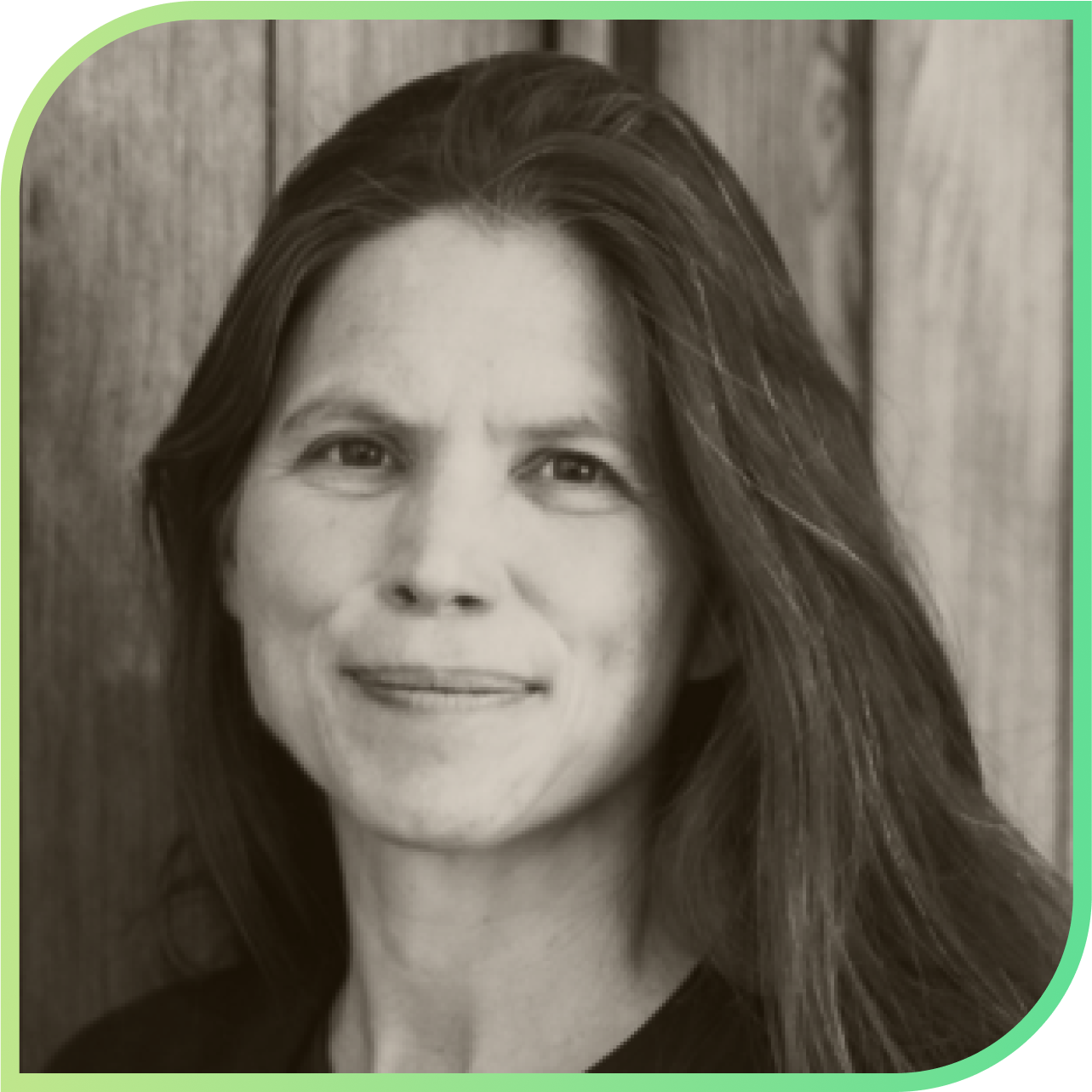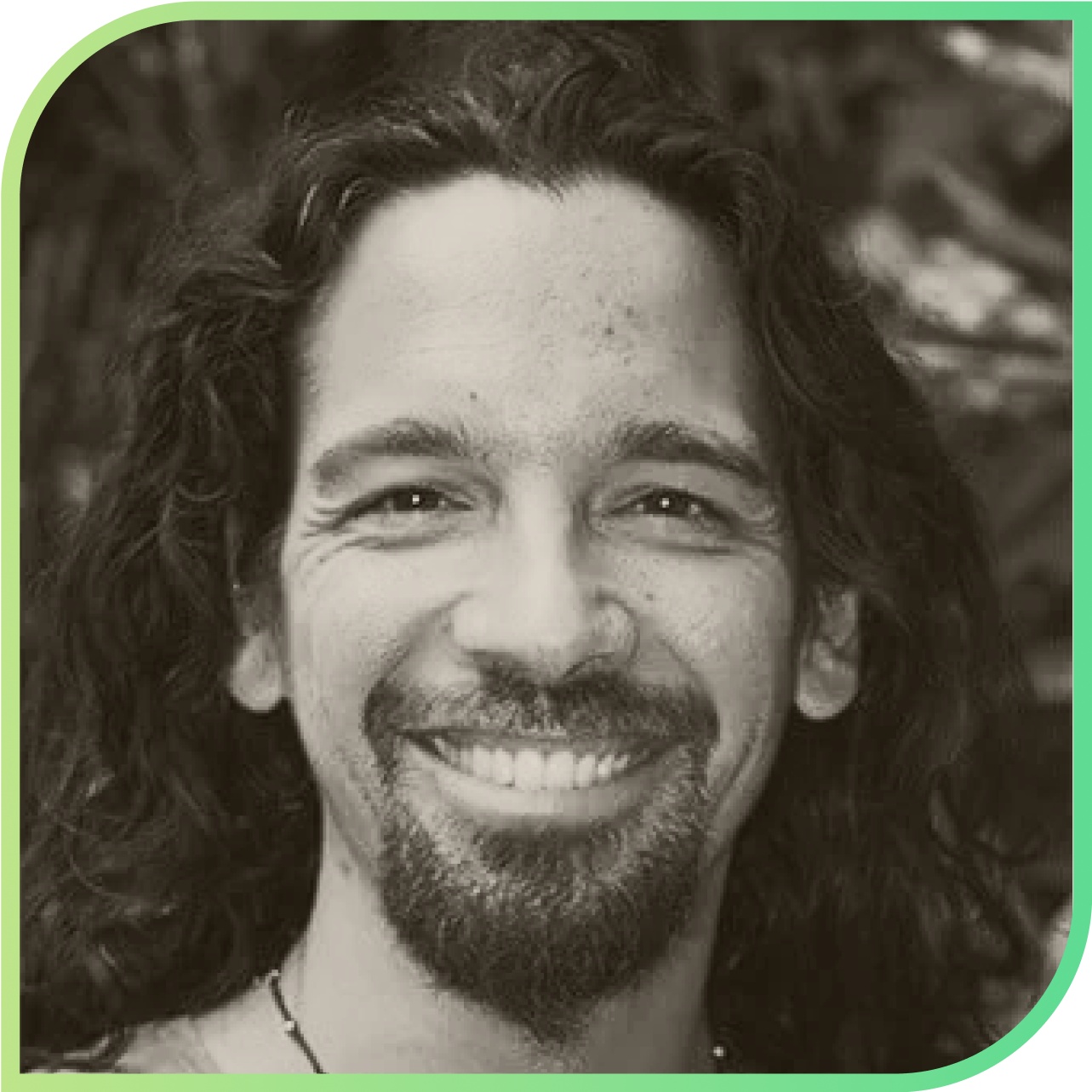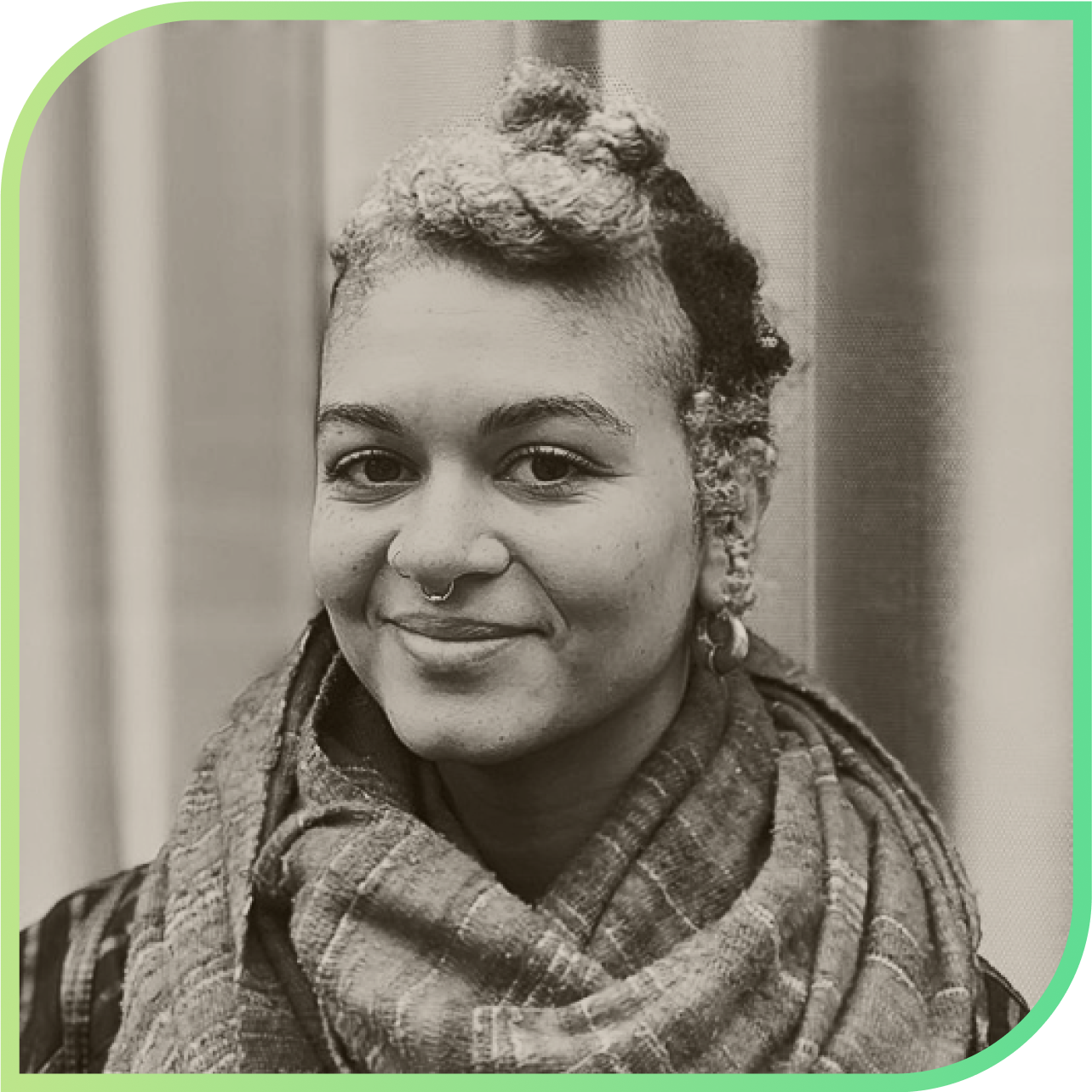Stewards of a New Paradigm
The Role and Core Competencies of Modern-Day Psychedelic PractitionersFEATURING GUEST PANELISTS:

Dr. Rosalind Watts

Dr. Loizaga-Velder

Claude Guislain

Camille Barton
Watch the recording of the live panel below:
Sign up for Exclusive Access to free
COMMUNITY Events
COMMUNITY Events
A Deeper Look at the Role and Core Competencies of Psychedelic Practitioners
In recent years, Western scientific studies have consistently affirmed the healing potentials of psychedelics, prompting a growing number of individuals to explore their use. Simultaneously, there is a notable increase in individuals wanting to facilitate psychedelic care.
However, given the novelty of this field, the absence of clearly defined roles and competencies for psychedelic practitioners poses a challenge, making it difficult for individuals to discern where to focus their attention. As psychedelic and Buddhist chaplain, educator, and Synthesis Content Advisor, Daan Keiman, says, “There is no template for a psychedelic practitioner yet.”
Even so, in response to this gray area, we recently hosted an online panel discussion, ‘Stewards of a New Paradigm: A Conversation on the Role and Core Competencies of Modern-Day Psychedelic Practitioners,’ including luminaries in the field of psychedelic care such as clinical psychologist and founder of ACER Integration, Dr. Rosalind Watts, anthropologist, ceremonial facilitator, and Indigenous rights advocate, Claude Guislain, clinical psychologist and co-founder of the Nierika Institute, Dr. Anja Loizaga-Velder, and artist, consultant, and educator, Camille Sapara Barton.
Understanding the Role of Psychedelic Practitioners
Stewarding others through non-ordinary states of consciousness is a tremendous responsibility due to the intensity that non-ordinary states of consciousness can pose on one's system and the openness they engender. Even though psychedelics have been used for millennia by Indigenous cultures, their integration in Western contexts is an emergent phenomenon.
In recent years, there have been attempts to outline the core competencies and responsibilities for professionals facilitating transformative journeys. Examples include the 2001 Code of Ethics for Spiritual Guides by the Council on Spiritual Practices, the 2017 Guidelines and Competencies for the Training of Psychedelic Therapists laid out by Janis Phelps, and the more recent 2023 Professional Practice Guidelines for Psychedelic-Assisted Therapy by the American Psychedelic Practitioners Association. Yet, the competencies and skill sets required for psychedelic practitioners are still in the process of being shaped and determined.
For this reason, individuals seeking to work with psychedelics may find it tempting to turn to Indigenous cultures that have preserved their traditions and cosmologies, attempting to borrow or imitate the practices.. However, engaging in such “borrowing” without consent and reciprocity often perpetuates harmful colonial dynamics and amounts to cultural appropriation.
Rather than merely attempting to emulate Indigenous cultures, Claude Gislane advocates for gradually and consensually developing relationships with Indigenous wisdom keepers, and, by extension, communities, building relationships based on trust and accountability, thereby contributing to bridging the gap between modern and ancient sciences.
He explains, “It would be helpful for us to think about how we bring information to these cultures about what is happening in the West. The bridge goes both ways, bringing information to Indigenous peoples about what is happening in our societies can also help them, and in turn they can inform us and teach us.”
Similarly, Camille Sapara Barton emphasizes the importance of honoring and being accountable to lineage, whether it be a Western or Indigenous lineage, as a way to reduce potential harms. They highlight, “It's important for practitioners in the West to have a lineage and to be accountable to a lineage because what we often observe is the emergence of self-anointed shamans.”
Furthermore, Camille Barton advocates for the cultivation of cultural responsiveness and humility. This includes “the capacity to work with those from a wide range of lived experiences, different cosmologies, and/or religious/spiritual backgrounds, and to help folks make meaning of their psychedelic experiences in relation to their personal backgrounds.”
A Diverse Ecosystem of Psychedelic Care
Taking a more clinical perspective, Dr. Rosalind Watts underscores that Western, clinical contexts often prioritize academic training, titles and licensing credentials. However, she stresses the importance of not stopping there, as the foundational skills for psychedelic care extend far beyond these formalities.
“I envision an ecosystem of psychedelic care that goes beyond the traditional roles granted healing rights in the Western context, such as psychiatrists and psychologists,” she shares. “I hope for a diverse, multidisciplinary community—mixed groups of people who have proven to be safe and capable pairs of hands.”
Moreover, Dr. Watts emphasizes the need for strong community containers as a way of preventing harm and ethical transgressions associated with unchecked power dynamics in the psychedelic industry and among practitioners. Over the years, many cases of harm in psychedelic work have been attributed to feelings of “specialness”, being chosen, narcissism and abuses of power.
To counter this, Dr. Watts suggests the need for coming together to develop “Us consciousness” in which we are able to relate to one another on an equal playing field and hold one another accountable, versus slipping into patterns of grandiosity or shame.
Dr. Anja Lozaiga-Velder draws a powerful analogy, likening the role of the psychedelic practitioner to that of a “midwife of the soul.” Someone who is able to create a safe container for the natural unfolding of the non-ordinary state while remaining attuned enough to discern when a more active support role is necessary.
She articulates, “I believe a psychedelic practitioner is someone with the capacity for selfless service, someone who has embraced a lifelong commitment to refining and fine-tuning the art and science of guiding individuals through the delicate realms of their own consciousness.”
Adding to the responsibility inherent in psychedelic work, Guislain underscored the ways in which modernity often perpetuates systems that lead us to become increasingly disconnected from one another as well as from the living planet as a whole, suggesting that psychedelics hold the potential to help re-enchant our perspectives toward the world and reconnect us with the beauty and wonder of existence. He reflected, “If we work on building an alliance of our worlds, this has the potential to change the world. In alliance with indigenous peoples, this will not just be a psychedelic renaissance but the renaissance of civilization—and this is what we actually need.”
As we navigate the evolving landscape of psychedelic care, cultivating a rich tapestry of competencies becomes pivotal to safely and ethically usher in the modern psychedelic movement. These include the cultivation of humility, compassion, and cultural responsiveness, committing to a path of ethical integrity and accountability, training in trauma-informed, somatic approaches, as well as ongoing self-reflection and personal work.
It is through the embodiment of these highly nuanced, multi-faceted skills that psychedelic practitioners emerge as guides — the stewards of a new paradigm — guiding individuals through profound journeys of healing and self-discovery.
Training for Psychedelic Practitioners
Whether you are a novice on the path, or are an experienced practitioner seeking to deepen and broaden your skills, the Synthesis training path offers a transformative journey. Comprising 13-month foundational core training, the Immersion Experience, a multi-day training retreat, and a 12-month hands-on Practicum program inclusive of a Practicum placement and live Professional Continuity Workshops, the Synthesis training path supports you in cultivating the skills required for professionally-guided and ethical psychedelic care.
Our curriculum provides participants with a holistic overview of the psychedelic journey, integrating research-based and wisdom-rich perspectives alongside an embodied assimilation of ethics and safety practices within strong and intimate community containers that provide accountability mechanisms necessary for ethical facilitation and personal and professional growth.
Discover the Synthesis Psychedelic Practitioner Core Training program, and join us in becoming a steward of this new paradigm.
Featured Panelists

Dr. Rosalind Watts is a clinical psychologist, a mother, and a nature lover. She has become a leading voice in psychedelic research through her roles as Clinical Lead for Imperial College London's psilocybin trial and Clinical Director at Synthesis Institute. Noted among the “50 Most Influential People in Psychedelics” as well as one of the top “Top 16 Women Shaping the Future of Psychedelics”, her focus is on integration, harm reduction, and inclusion. She leads ACER Integration, an integration community that aims to provide experiential education around integrating singular experiences into the wider collective and connecting more deeply to the self, others, and nature.

Claude Guislain is Peruvian and primarily lives in the Peruvian Amazon and Brazil. He advises IMCFund and other organizations like ICEERS and ASOMASHK on indigenous relations. Trained as an anthropologist, he has walked with masters from the Shipibo, Arhuaco, Tubu, Yawanawa, and others. Since 2008, he's facilitated Ayahuasca retreats and advocated for indigenous rights. He partners with healing centers like the Temple of the Way of Light, Niwe Rao Xobo, and Shipibo Rao, supporting the healing processes of more than 2,000 people. After many years of quest, his role revealed itself as a bridge between worlds. Witnessing his teachers' mastery—the teachings, the stories, the medicines, the technologies—gave him the firm conviction that a true alliance between Indigenous Wisdom and Modern Science is key to addressing today's challenges.

Dr. Anja Loizaga-Velder is a German-Mexican clinical psychologist with a deep connection to indigenous psychedelic healing practices spanning over three decades. She co-founded the Nierika Institute in Mexico, dedicated to preserving indigenous traditions with sacred plant medicines and research around their therapeutic applications for mental health and personal growth. She has published several research articles and book chapters exploring the therapeutic potential of entheogens for treating mental health challenges and has presented her work as a speaker at many conferences. Anja collaborates as a learning facilitator and guest faculty in the Synthesis Psychedelic Practitioner Training program.

Camille Separa Barton (they/them) is an artist, consultant and educator who explores creative interventions that sustain life. Embodiment, healing justice, and drug policy are key threads within their work. Camille is certified in the Resilience Toolkit and previously led the Collective Liberation Project, providing workshops and training on embodied approaches to anti-racism. In recent years, Camille has taught within various programmes for psychedelic therapists in training. Since 2017, they have worked to ensure that MDMA Psychotherapy will be accessible to BIPOC and other communities disproportionately impacted by the war on drugs.
Sign up for Exclusive Access to free
COMMUNITY Events
COMMUNITY Events